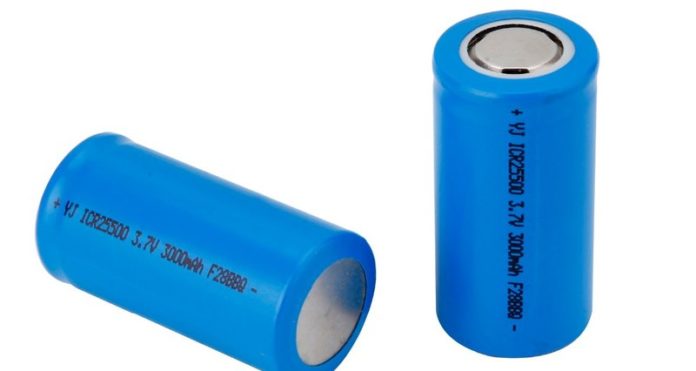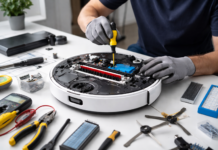Things To Know About Lithium-Ion Batteries
It’s curious how the world works – small things can power big things. Batteries provide the life-blood for most electric devices out there and lithium-ion batteries are not an exception of course. The lithium-ion batteries were first commercialized in 1991 and are now used for various portable devices worldwide. But how much do we know about these small parts that have become a corporate part of our daily life? In this post we tried to sum up the most interesting and useful information about lithium-ion batteries, so keep on reading and imbibe knowledge.
The history of batteries
The term «battery» was used for the first time by Benjamin Franklin in 1749. He used this word to describe a series of capacitors he had linked together for his electricity experiments. However, the first battery was invented a couple of decades later, and the history of this invention is of interest indeed.
In 1780, Italian biologist, philosopher, physicist and physician Luigi Galvani was dissecting a frog attached to a brass hook. Once he touched the frog’s leg with an iron scalpel, the leg twitched. Galvani wrongly believed that the energy came from the leg itself, but his fellow scientist, Alessandro Volta, had another explanation of the issue. Volta made a hypothesis that the frog’s leg impulses were actually caused by different metals soaked in a fluid. He repeated the experiment using moist cloth, which resulted in a similar voltage. Volta published his findings in 1791 and 9 years later he created the first battery, the voltaic pile.
How are the batteries operating?
Typically, batteries have one or more cells whose chemical reactions create a flow of electrons in a circuit. All batteries contain 3 basic components: an anode (the ‘-‘ side), a cathode (the ‘+’ side), and electrolyte (a substance that has a chemical reaction with the anode and cathode). Lithium-ion battery falls into a family of rechargeable battery types where lithium ions move from the negative electrode (-) to the positive electrode(+). When the anode and cathode of a battery is connected to a circuit, a chemical reaction takes place between the anode and the electrolyte.
The battery is considered «dead» when the battery is unable to produce electricity. This may happen due to a couple of reasons:
- the material in the cathode or anode is consumed or no longer able to be used in the reaction;
- the battery was not used properly. If you read this post to the end, you will find out some tips and tricks on how to store batteries properly.
Lithium-ion batteries can vary in size, form, the material used for the positive and negative electrodes, and so on. A battery’s capacity is a measure of the amount of electric charge it can deliver at a specific voltage. Most batteries are rated in amp hours (Ah) or milliamp hours (mAh).
Tips on how to store your lithium-ion batteries properly
The batteries like when they are taken care of and they will return the favor. When it comes to batteries, common sense is required as their incorrect storage and use can lead to unpleasant consequences. Here are some basic safety instructions, if you want to extend the lifespan of your rechargeable battery:
- Make sure you never use a damaged battery (the one with dents, scratches, etc.);
- Use battery cases and never carry your batteries in pockets or bags as they may come in contact with keys, change or other metal objects;
- Watch out for counterfeits and never go for the cheaper or unauthentic option;
- Keep an eye on your charging battery and don’t leave it unattended, especially overnight;
- Use a dedicated charger;
- Do not over-drain your batteries. Lithium-ion batteries may lose more capacity once they are completely discharged;
- Do not expose your battery to extreme heat and direct sunlight;
Compared with traditional battery technology, lithium-ion batteries charge faster, last longer, and have a higher power density for more battery life. So now, we hope you should have a basic understanding of how the lithium-ion batteries were invented and how they work.
















